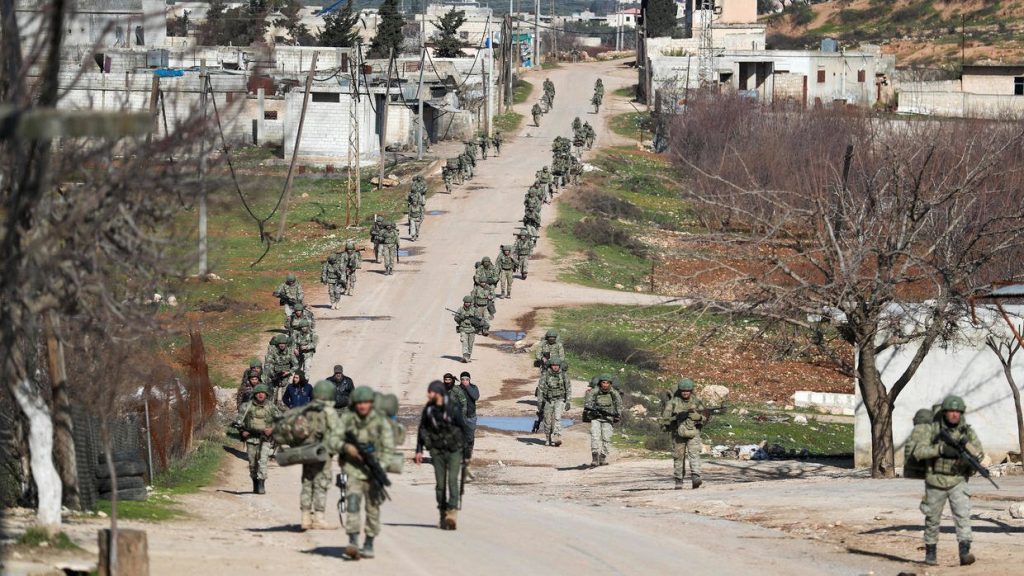
- ARAB NEWS
- 14 Jul 2025

At any given time, every country has one topic of debate that consistently dominates the domestic and foreign agenda.
For the past decade in Turkey, this has been the conflict in Syria and the refugees that have fled the war-torn nation. With each passing year, new dimensions have been added to the problem, and it is unlikely that the issue will be resolved any time soon. There are a number of reasons for this.
First and foremost, whatever happens in the coming years in Syria, and however the war ends, Ankara does not want to be an outsider, looking in. Its ultimate aim is to have a say in the future of its neighbor, with their interests converging. Turkish authorities have deployed hard and soft-power tools in pursuit of this aim and want to reap the rewards of their efforts.
While pursuing this goal, however, Turkey does not want to find itself sharply at odds with the other major players with an interest in the Syrian war — namely Russia, Iran and the US, who have played significant roles in the shaping of the conflict. During the past decade, Turkey’s relations with Russia and Iran, and also with the US and the EU, have been seriously tested, which has caused a number of crises. Finding a way to tread a fine line between these interested parties has been, and remains, a challenge for Ankara.
Thirdly, the debate about Syrian refugees has evolved beyond a humanitarian argument to become a political issue affecting domestic and foreign policies. Ankara initially set a limit of 100,000 refugees but now hosts more than 4 million, which has created both economic and social pressures on the government at home.
Turkish public opinion is divided on many subjects, but the issue of Syrian refugees is dividing the people further. It is probably why Turkey keeps rehashing the refugee rhetoric in comments addressed to other European capitals.
Fourthly, the Turkish government’s policy on Syria has been criticized by opposition parties from the start. This has led the government to enhance its approach, justifying this as a matter of national security and stability, with rhetoric that includes the slogan “Peace in Syria means peace in Turkey.” So far, Ankara has carried our three military operations in Syria to eliminate terrorist threats considered a danger to Turkish security. These operations had received both criticism and support from a divided public.
Only time will tell how Turkey’s policies in Syria hold up and what effect the discussions in Moscow this week will have on the ground.
Sinem Cengiz
Lastly, among all the disquieting threats the Syrian war poses to Turkey, Idlib seems to have become the toughest challenge. What is now happening in northwest Syria is no longer a proxy war; rather it is a direct confrontation between Turkish and Syrian regime troops, the latter of which are backed heavily by Russia.
The recent killing of 33 Turkish soldiers in an attack on their convoy in Idlib was a tipping point that brought Russia and Turkey close to losing all the progress made by the Astana process and the Sochi agreement. The situation became even more complex after the Turkish military’s retaliatory operation against Syrian army positions.
What does Russia want? It definitely wants a triumph for its ally, Assad, in Idlib, which is the last rebel-held province, to pave the way for its own expansionist policies in the region. This would represent a momentous victory against the West, in particular the US.
However, it would also mean the collapse of Turkey’s long-term Syria plan. In such a deadlock, then, how can Turkish and Russian leaders find a mutual compromise? To address this, Turkish President Recep Tayyip Erdogan traveled to Moscow on Thursday for a face-to-face meeting with Russian counterpart Vladimir Putin, with whom he has had frequent meetings in the past few years.
However, this latest meeting was significantly different from the others, as the two leaders met not to agree but to “agree to disagree” on a crucial phase in Syria.
Throughout the Syrian war, the two leaders came together in moments of crisis. They managed to find ways out of these crises, including the shooting down of a Russian aircraft and the Turkish cross-border military operations Euphrates Shield, Olive Branch and Peace Spring. They became the architects of the Astana peace process.
However, in the words of a pro-government Turkish columnist: “Although ‘My friend Putin’ didn’t turn yet to ‘President Putin,’ Erdogan’s trust in Putin has been shaken.” During a joint press conference prior to his meeting with Erdogan, Putin expressed his condolences for the Turkish soldiers who were killed. The Turkish leader said that Ankara wants to deepen its relations with Russia and find a solution to the Idlib crisis.
One of the most important statements came from Putin, when he said: “The situation in Idlib has worsened to such an extent that it demands our personal conversation so that nothing like this happens again and Russian-Turkish relations will not be destroyed.”
This is a critical phase of the Syrian conflict for Ankara because Idlib marks a turning point. If Turkey is forced to withdraw from Idlib, it would lead to a complete withdrawal from the places in which it has been carrying out operations. As things stand, this is out of question for Ankara.
Turkish authorities know that if they can win this round, they will have a bigger say not only in Syria, but in the wider region as well. Only time will tell how Turkey’s policies in Syria hold up and what effect the discussions in Moscow this week will have on the ground.